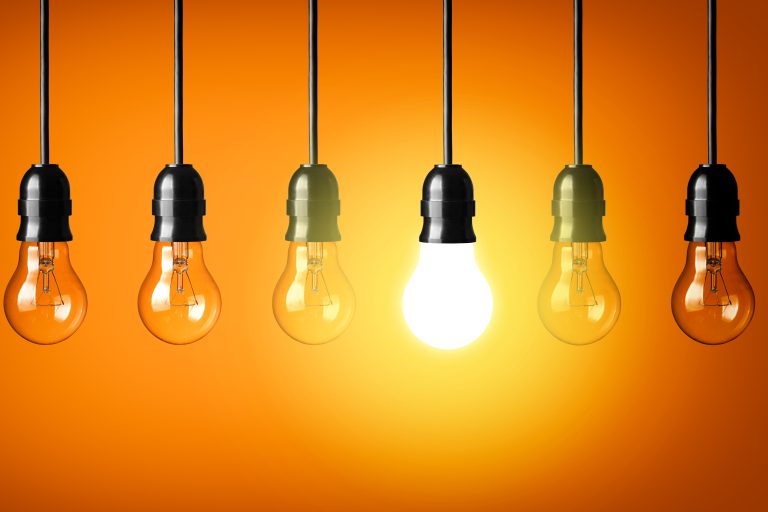Many years ago, before the common use of cell phones, I had the unfortunate experience of being trapped alone in a hotel elevator in Israel. Although the elevator was stuck for only a few moments, it felt like an eternity. Aside from the overwhelming fear that I experienced, the sense of complete isolation at not being able to share my fear with another human being was suffocating. As anyone going through any trial knows all too well, experiencing nisyonos alone only adds to the trauma.
We have been reciting Tehillim 27, “L’Dovid Hashem Ori” for the past few weeks. One of the themes of this mizmor is Dovid HaMelech’s reaction to the dangers that threaten him in the midst of warfare and battle. Aside from the physical battles that Dovid fought, he encountered spiritual and emotional obstacles within his life, from which we draw strength and parallels to our own lives. Over the course of about seven weeks, we become accustomed to repeating Dovid’s references to enemies, to battlefields, to fear and to isolation. Despite these intense emotions, Dovid begins the mizmor with a sense of hope and security. L’Dovid Hashem Ori, Mi-mi Irah?” To Dovid – Hashem is my light (and therefore, if I know that Hashem is my light and brings salvation), from whom shall I fear? (Metzudas Dovid).
The mention of “ori”– my light – in the first person possessive form, can perhaps indicate that Hashem shines His light on each person in a way that is tailor-made for each individual for each particular situation. Light is generally not something that is individualized. If we turn on a light, or experience the light of the sun, that light shines for everyone in its proximity in the same manner. However, the or that Dovid references is ori – it is my light, and custom-made for my particular set of circumstances and daily battles. Dovid is providing encouragement to us as we encounter our challenges that we must be armed with the knowledge that our predicaments are tailor-made for us, and our extrication from those battles and the accompanying joy will be a perfect fit as well.
Ori – my light – symbolizes a connection and relationship. It is the opposite of isolation, because the light is given to me by G-d and was specifically designed with me in mind. We can understand this idea of light in general, as implying a connection and a shared existence, when attending to the flip side of light – namely darkness, and specifically, makas chochech in Egypt. Rabbi Avraham Leib Scheinbaum, in Peninim al HaTorah, points out the following. The verse in Sefer Shmos tells us, “And there was a thick darkness throughout the land of Egypt, no man could see his brother, nor could anyone rise from his place” (Shmos 10: 22-23). The absence of light, or darkness by definition, is a state where one cannot see the other, so what added information is the pasuk telling us by letting us know that the Egyptians could not see each other? He answers that aside from the intense darkness that the Egyptians experienced, they were given an added layer of suffering because they could not see one another, and due to their paralysis, neither could they communicate with each other. This plague differed from the other nine because, unlike the others, where Egyptians suffered the turmoil, but did so collectively, for makas chochech their pain and suffering were experienced alone, with no one to share their fears, and with no one to whom to cry. Whereas darkness implies isolation and fear, light gives us security because we can forge connections.
In reality, when one goes through any trial, by all rights he experiences that trial alone. No matter how much support is provided, or even if another is suffering from similar challenges, due to the complexities of the human psyche and the differing reactions to each experience, no one truly ‘gets it’ with 100% clarity. Although support and cameraderie provides some relief to the sufferer, it is impossible to fully understand the emotions and pain that pulsate within an individual since we all process stimuli differently. One need only observe families that lo aleinu experience a collective tzarah. Reactions of each family member can vary, despite the close relationship and despite the fact that the event is the same.
Im takum alai milchama, b’zohs ani boteach – Though battle comes to rise up against me, in this I am secure. I am secure in the knowledge that Hashem is Ori. Hashem who is bochen k’layos lev – the One who truly understands the recesses of our heart is the only Entity that really ‘gets it’ with 100% clarity. We proclaim that in whatever battles we may engage, whether spiritual, emotional or phsycial, the knowledge that Hashem is my light provides me with a feeling of protection.
L’Dovid Hashem Ori gives us a sense of hope during the months of Elul and Tishrei as we take up battle positions. Instead of a sense of dread as we approach Yom HaDin, that seriousness and intensity is balanced with feelings of encouragement that Hashem creates a lifeline for us that is unique to our situation. We have personal battles every day of our lives, in the realm of child rearing, shiduchim, illness, interpersonal relationships, and the most difficult battle of all, combating our own weaknesses. This mizmor reminds us, that each of us must attempt to feel a personal connection to Hashem during the months of Elul and Tishrei. When we are armed with the knowledge of THIS (b’zohs) – the perception that I do not have to traverse the battlefield alone in the dark because Hashem Himself enlightens my particular path – this gives us encouragement that we will emerge victorious during the Yamim Noraim.

